1994 Green Cadillac Fleetwood
- Price: Ask a price!
- Condition: Used
- Item location: Clinton, Massachusetts, United States
- Make: Cadillac
- Model: Fleetwood
- Type: Sedan
- Trim: Brougham
- Year: 1994
- Mileage: 76,583
- VIN: 1G6DW52P7RR708443
- Color: Green
- Engine size: V8
- Number of cylinders: 8
- Power options: Air Conditioning, Cruise Control, Power Locks, Power Windows, Power Seats
- Fuel: Gasoline
- Transmission: Automatic
- Drive type: RWD
- Interior color: Tan
- Drive side: Left-hand drive
- Safety options: Driver Airbag, Passenger Airbag
- Options: Cassette Player, Leather Seats
- Vehicle Title: Clear
Cadillac Fleetwood 1994 Description
INTRODUCTIONThis 1994 Fleetwood Brougham is one of the nicest Fleetwoods I have seen in quite a while. The car is finished in a beautiful Slate Green Metallic, a rare color that was also available on the 95 and 96 Impala SS as Dark Grey Green Metallic, over a lovely neutral leather interior. Only 3,334 93-96 Slate Green Metallic cars were built in total. Only 2,247 of which were LT1 powered cars (94-96). Of that 2,247 only 1,772 were built in 1994, the first year for LT1 power, and the last year for the original and more classically styled exterior mirrors. Combine that with only roughly 2/3’s of Fleetwoods being equipped with the, must have, Brougham package along with this particular cars mileage and condition and you start to see how rare this particular example really is. If you have been searching for THE perfect Fleetwood you have found it. With only 76K Miles (that'sonly 3300 miles a year on average); I cannot say enough about this cars condition, it is simply outstanding. The Interior is just about flawless which is incredible considering the cars age. The exterior shines bright. It shows that this car has spent its whole life in a garage. Thevinyltop is also like brand new withabsolutelyzero cracks or tears. Thefront tires are brand new with an alignment just performed. The front tires were replaced due to wear from the car sitting and not due to low tread. The rear tires are all but new with very minimal tread wear. This car looks like it has 30K miles. This is one of the few Fleetwoods I have bought over the past 8 years that I have found to be eBay worthy. I hope that the pictures speak to that point. This model of Cadillac Fleetwood was produced, in extremely low numbers, between 1993 and 1996 and there will never be another car like it.
YEARLY CHANGES AND BROUGHAM CARS VS. NON-BROUGHAM CARS
First of all not all 93-96 Cadillac Fleetwoods were Broughams. You can tell a non-Brougham by a few noticeable features. Non-Broughams had the horrible looking "Turbine" style wheels that were more suited to the very similar Buick Roadmasters. Brougham cars all came with the big "Dish" style wheels that are represented by my car below. Non-Broughams also did not come with the unique vinyl roof. Some Non-Broughams do have the factory vinyl roof optioned on, but it is rare to see. What is more common to see is a cloth (not vinyl) roof tacked on by the aftermarket. These aftermarket roofs also cover the tops of the doors and in my humble opinion; do not do these cars justice. No matter what anyone tells you these roofs never came equipped by the factory. They are, at the very best, tacked on by the dealer when the car arrived from the factory. Brougham cars also came with standard heated leather seats with memory functions. Non-Brougham cars had cloth seats standard but some were optioned with leather. However, Non-Brougham cars could not be optioned with heated seats or the memory function. Real Brougham cars also came equipped with rear seat vanity mirrors, pictured below, that were not available on Non-Broughams. On top of all of those reasons on why you should never settle for a Non-Brougham when searching for the Fleetwood of your dreams is that Broughams also came equipped with a numerically higher rear axle ratio that gave the big Cadillac a more powerful feel, than the lesser Non-Broughams, that it truly deserved. Now onto yearly differences. It is rare that when a car is only made for a 4 year model run that each of those model years will be significantly unique. This however, is the case with the Fleetwood. The 1993's in particular received the woefully under powered TBI 5.7L truck engine that was rated at 180HP. Be cautious as less savory individuals often try to pass off 93's as LT1 cars or intentionally misrepresent them as a 1994 model. Not one 1993 ever came with the LT1 Corvette derived motor which was conservatively rated at 260HP. Think about that figure for a moment.... That means that the Fleetwood, in 1994, received a 80HP power bump. That is almost a 50% increase in power from one year to the next. For comparisons sake that would be the equivalent of GM taking a 1993 Corvette with 300 factory rated Horse Power and bumping it up to almost 450HP for 1994. It is a massive difference and anyone who has driven a Fleetwood with each motor can easily attest to this. The car was never originally designed to have as much power as it got. The only reason this massive Cadillac got the Vette engine was because, at the time, it was the only motor GM had available that was able to power the car (Northstars were all Front Wheel Drive back then) and also met the new federally mandated emissions for the 1994 model year. Whoever said emissions were a bad thing??? Not in this case. What this in turn amounted to was one on the fastest factory full size four door sedans in the world from 1994-1996. This is why you see 1993's selling for so much less than equivalent 94-96 models over and over again. Also, all 1994-1996 cars received the updated 4 spoke steering wheel to replace the old two spoke steering wheel design from the 93 model year. Then in 1996 came the change in the cars computer. All 93-95 cars have the OBD1 Power Train Control Module while only 1996 Models came with the OBD2 Module. In the 90’s and beyond GM started to incorporate an on board diagnostic system. You may ask why that is so special? After all, didn’t all manufacturers produce these systems? Yes, they did, but GM had a clever and interesting way designed to actually READ the codes. With most manufacturers, when the check engine light came on, you’d have to take the car to the local shop or dealer in order for them to plug the car into their computer to read and diagnose the code. However, GM devised an interesting way to pull codes from the car itself using nothing more than the cars on board climate control system. Without, going into too much detail this handy system allows you to pull your own codes by putting the climate control into diagnostic mode. Once you read the code you can simply use Google to find out what the code means and decide how pressing the matter is. How neat is that? Not many cars allow you to be armed with information before you even get to your mechanic or dealer! Unfortunately, this was disabled for the 1996 model year with the introduction of OBD2; making the 94 and 95 the only years that combine this cool feature with the power of the LT1 engine.
THE FIRST OF ONE, THE LAST OF MANY, AND WHAT MAKES THE CAR VALUABLE
As with any collectible car that is rising in value its best to have either the first or last model year. In addition to all of the reasons mentioned above, I believe it may be best to have the first model year (disregarding the undesirable 1993 models; is the full-size Chevy more valuable and collectible before or after the 409CI motor was introduced?) for this particular vehicle and allow me to explain why. I think that the 1994 is arguably the best because this car is such a milestone in American Automotive Manufacturing. It signifies the last of many traditional Cadillac and quintessential American automobile features and the first of a trend that is now gaining so much traction. In the latter half of the preceding sentence I am referring to the Corvette derived engine. This was the first Cadillac to ever receive a bona-fide version of the engine and transmission found in the same model year Corvette. This has since become a phenomenon in the Cadillac CTS-V since its introduction in 2004. Now in its 3rd generation it is one of Cadillac's best selling cars and probably the most note-worthy current offering from the company alongside the Escalade. Unlike the CTS-V, however, this is very much a traditional Cadillac and the last of the truly "pure" Cadillac's. This is the last body on frame car GM ever built. All cars since have been uni-body and due to cost cutting and globalization it will never be seen again. It is the last Cadillac that truly separated itself from the cookie cutter car company world that we live in today. It is unmistakably Cadillac and unmistakably American... Elvis would have been proud to own this car. The same cannot be said for anything since or currently on the market today. This car was a time capsule into the 1960's and 70's when it was new in 1994 and the same can be said about it today. This car was unique in the 90's but it also combined the best of the 60's and 70's (size, style and comfort) with the best of modern cars. Namely fuel efficiency, technology, fuel injection, reliability, and safety. This car also marks the last comfortable Cadillac with rear wheel drive and six passenger seating. I do not care what anyone says, if it isn't rear wheel drive it isn't a true luxury car and certainly isn't a real Cadillac. The seats are like sofa cushions, not the chiropractic chairs that are found in all modern cars and the suspension is like riding on a cloud. Do you remember when it did not feel like exercise every time you turned your steering wheel? This car can be steered with a pinky finger in tight parking lots and also has a tight solid feel on the highway thanks to "Variable Assist Steering" that tightens the steering gradually as the car climbs in speed. A really cool feature! The 93-96 Fleetwood also marks the last of exposed steel bumpers on any car available in the US. In 1997 every car came with plastic bumper covers. The Chrome bumpers are one of the many reasons I love and miss these cars so much. With the death of the Fleetwood came the death of two other trademark GM features. First of all, this was the last car to ever have the gas filler hidden behind the license plate. No ugly fuel doors on either side of this beauty. This particular Fleetwood is optioned with the rare "Security Package" that not only includes an alarm but adds a locking mechanism to the rear license plate bracket that stops the plate from being folded down when you hit the power door locks on the key fob. This prevents tamperers and would be gas thieves from accessing your fuel cap. To my knowledge this is the only car that ever offered such a feature and it’s really cool! It sounds like you are locking down Fort Knox when the button is pressed and that bolt slides across the back of the plate bracket. The second signature feature that this car signifies the last of is the old fiber optic "Headlight Monitoring System" that was famous on Cadillac's, Oldsmobile's and Corvettes alike. Pictured below, there are corresponding lights on the hood facing the driver that work in unison with your high, low, and indicator bulbs found in your headlights. If a bulb goes out the corresponding fiber optic light will also go out notifying the driver. There is also a pod mounted to the rear headliner above the back window that can easily be viewed through the, auto-dimming, rear view mirror that monitors the rear indicators, brake, and taillights. This is the last of the days when a car was more than just a rolling computer that brought you as boringly as possible from point A to point B and such a car will almost certainly never be built again. Most collectible cars boil down to production numbers. Also, the old adage, "Nothing that was designed or destined to be collectible ever is", rings true on this car. While everyone was climbing over one another to buy the last of the full-size rear wheel drive Impala SS for $25,000 most overlooked the tremendously expensive $40K plus Fleetwood Brougham. The result is a massive surplus of low mileage 94-96 Impala SS's currently on the market today. Unless massive amounts of people start driving these low mileage examples it is very unlikely that the Impala will ever be worth much. This combined with the few color options (3 exterior and 1 interior) and very few other options make the majority of Impala's duplicates. None are unique and production numbers hit just shy of 70K over its 3 model year run. Fleetwoods totaled 90,531 over a 4 year run. 31,773 of which were built in 1993. This leaves only 58,758 LT1 Vette powered Fleetwoods ever produced. I invite you to revisit the first paragraph, at this time, to look further at the yearly numbers brake down. Now consider how many were fleet sales, how many became limos, how many became hearses, flower cars, ect. and you start to see just how rare this car is. Compare that number to the number of Impalas along with options variations and you start to see the real picture. As I mentioned Impalas were available in 3 exterior colors, Black, Dark Cherry Metallic, and Dark Grey Green Metallic. Fleetwoods however were available in 20 different exterior colors. Then there are interior color options which were numerous, while the Impala made due with just Grey. The other options available are vastly different also. Impalas had very few options and because many were unwisely purchased as investments most have every option. Fleewoods on the other hand had not only a vast number of options but also two distinct models.... the Fleetwood and the Fleetwood Brougham. So not only were there less LT1 Fleetwoods built, than Impala Super Sports, not only is each individual Fleetwood much more unique than any Impala could ever have been, most importantly, people did not have the foresight to tuck them away. No one thought it would be the last real Cadillac, no one thought it was to be the end of the longest running nameplate in American Automobile history (Fleetwood.. now held by the Suburban), and no one thought it would be collectible.... and that is why it has become so collectible. If you are like me you have watched these cars drastically swing upward in terms of value over the past 10 years. They were hard to find then and even harder to find now. This is partly because many owners either do not realize what they have and drive it into a junk yard or because the owner knows exactly what they have and they refuse to give it up, because nothing can replace it. In the years where Lincoln sold over 300k Town Cars, Cadillac didn't even sell 60k Fleetwoods. That should be a startling number. This was because the Fleetwood was in its own league. The Town Car was competing with the Cadillac Deville at the time and the Fleetwood was tremendously more expensive than either. Now many cars from the 60's and 70's are considered "rare cars" but in retro-spect most were just dolled up budget cars. A GTO was just a Lemans, a Chevelle was just a Malibu and in the 90's an Impala really was not a whole lot different than a Caprice. These Fleetwoods on the other hand were totally unique. They have their own Chassis dubbed the "D" platform that is longer than that of the Buick Roadmaster, Chevrolet Caprice, and Impala SS. On the outside it shares only the front doors and mirrors with other cars while every other panel and piece of trim is Fleetwood specific. The interior is similar; very few parts were shared with other "B" platform siblings or lesser Cadillacs. What this all boils down to is an extremely unique, collectible, and truly rare car, the likes of which will never be seen again. Use this car as a Sunday driver or tuck it away yourself and watch it appreciate in value. Fleetwoods are already being recognized for their potential value and numerous examples have already crossed the auction block on live television on Mecum and Barrett-Jackson and the car is only 20 years old. Imagine what they will bring when they are 40 years old like the high priced cars of the 60's and 70's are bringing today.
MECHANICAL CONDITION
Nothing feels as good as looking out over the two foot long dashboard onto a mirror reflective hood with the Chrome Cadillac Crest and Wreath hood emblem. I have had a lot of Fleetwoods over the past eight years and I can honestly say this is one of the nicest driving ones I have experienced. The brakes are tight. The steering wheel is dead straight, the steering is perfectly linear, tight, with no vibrations and zero pull. The car idles and accelerates without any miss or hesitation and it is at times hard to even feel the transmission shift it is so smooth. The car has all of its original paint and has a clean carfax that I can gladly procure for you.
LAST WORDS
I again want to stress how important it is to not miss out on this car. It belongs in a car collection. This is everything you could possibly want in what I think is the best car ever made. It's a Brougham, it’s a rare and desirable color, it's the first year for the LT1 (1994), it has only been driven roughly 3300 miles per year since new, and lastly the car was extremely well cared for, and as such, the condition is remarkable. This car is in better shape inside and outside than most 20k and 30k mile Fleetwoods I have seen. It will be a long time before thisextremelydesirable combination appears on the market again. A word aboutmileageon these cars. Most people assume that the lower themileagethe better the car and the greater the condition. After owning countless Fleetwood Broughams over the past 8 years, since I bought my first in 2007, I can tell you that there isabsolutelyno truth to this. There are so many other factors at play. Was the car always Garaged? Has it ever been in an accident? If the car is from a warm climate was it ever left parked near the Ocean? How well was the car maintained? This will show on the test drive. Was the car left outside in the sun? This causes major paint damage, cracking on the vinyl roof, and cracked to pieces dashboards that cannot be replaced. There is another note actually, do not buy a Fleetwood without taking a good look at the dash. If it’s covered by a "dash mat" it most likely resembles the San Andreas Fault underneath and the owner is cleverly trying to hide it. Who was driving the car? Was it an overweight person? If so the driver’s seat will have holes and tears around the heated seat box from the owner sliding over it. Seat frames are also often bent by heavier passengers and can be recognized by how un-level the front seats are in some cars. The seats and dash are flawless in this car which isexceedinglyrare. I am not here to tell you thatmileageis irrelevant because it’s not. It is in fact very important. As important as condition. What I am trying to convey is that there is a difference between lowmileagein outstanding shape and lowmileageneglect. There is also a difference between low mileage and too low of mileage as odd as that sounds. Sitting idle and not starting or moving has a way of weathering a car even if it was garage kept. If you plan to buy a 8-30K mile car bepreparedto be fixing a lot of issues. While these cars often have the best paint and cleanest interiors, mechanically the age has taken effect. Dry rotted tires, dry rotted belts and hoses, brittle hard plastic lines. All common problems with a car with "too" low of mileage. More importantly the brakes freeze up and often needreplacementand the fluids tend to solidify. If looking for a car with that low of mileage that has sat idle for long periods of time make sure you do a thorough inspection of the carsmaintenancerecords to show that the car had its fluids flushed regularly. As far as mileage is concerned I believe that this particular car is the perfect mix. It has only been driven roughly 3300 miles a year since new and it was done so consistently. It has the right number of miles for a 20+ year old car. Not too many and not too few. Maintenance was clearly a high priority as this car truly drives like it just rolled out of the factory. This car is incomparable to anything else on the road. I have owned numerous Town Car, Crown Victoria, Grand Marquis, Continental, Roadmaster, Caprice, 300, Deville, Seville, DTS and STS sedans, along with the Eldorado, Monte Carlo, and Cutlass Coupes. Nothing compares to the feeling that this car gives you going down the road. If you do not like constant compliments at gas stations and red lights this is not the car for you. This car came factory equipped with the same version of the Impala SS LT1 Corvette engine and therefore comes with legendary small block reliability. This is not a North Star Cadillac!
I welcome all inspections on the vehicle, be it mechanical or cosmetic, personal or professional, and I can gladly provide high quality photos of any specific area on the car for you that I may have missed. There are inspection companies that eBay recommends and last time I used them the cost was around $100. Worth every penny and I highly recommend their services. If you would like to have an inspection done and are having trouble finding the correct link please call so I can point you in the right direction. Be clear I am not responsible for shipping. eBay has a list of recommended shippers but I have found that typically the best prices are found by searching Google and shopping companies against one another. However, I will gladly help assisting you with shipping or would gladly (and preferably) pick you up from any local airport so you can make a good personal inspection of the car before taking delivery. Boston Logan International Airport, Providence Airport, Manchester Airport, or preferably Worcester Airport. Please note I also have the car for sale locally and I reserve the right to end the auction early. 50% of the payment is due within the first 48 hours of the auction ending. The remainder is due upon pickup. For any questions, comments, or to schedule a test drive, please contact The Car Guy, Jack Keane at508-769-5080. And as always, Happy Motoring!
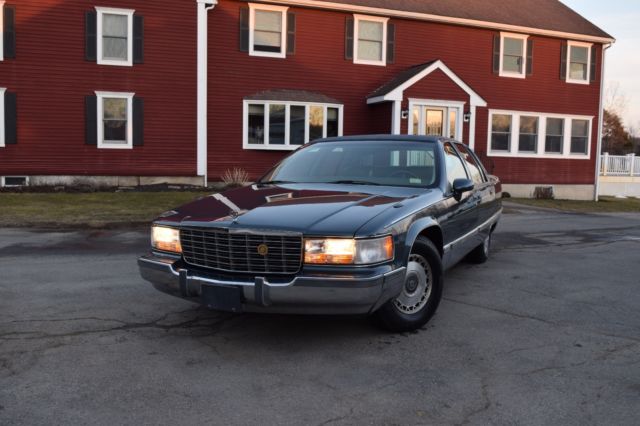
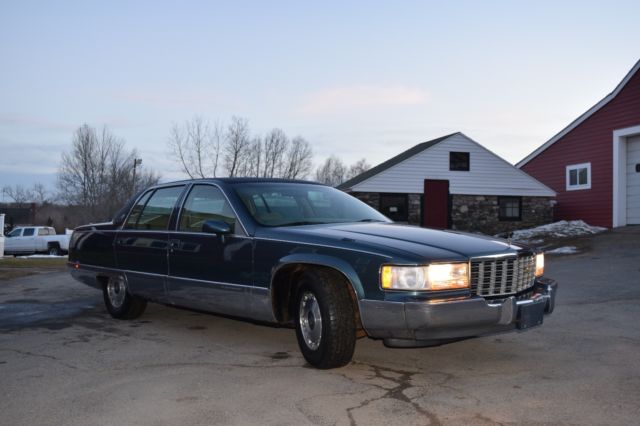
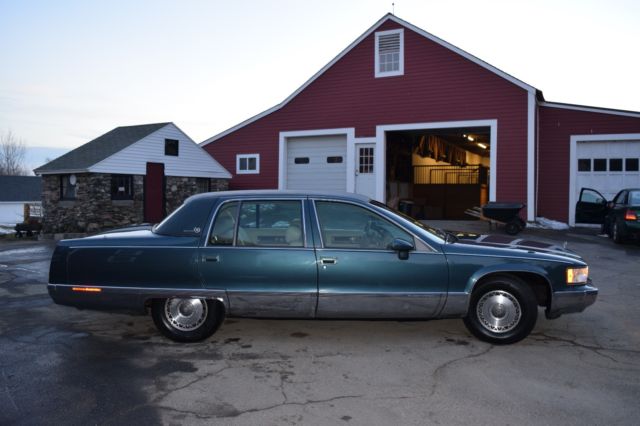
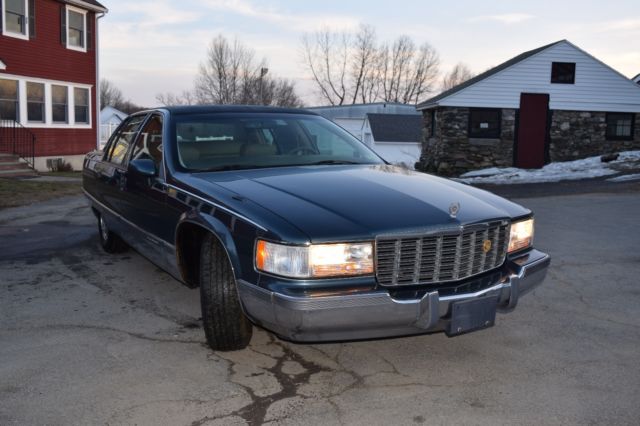
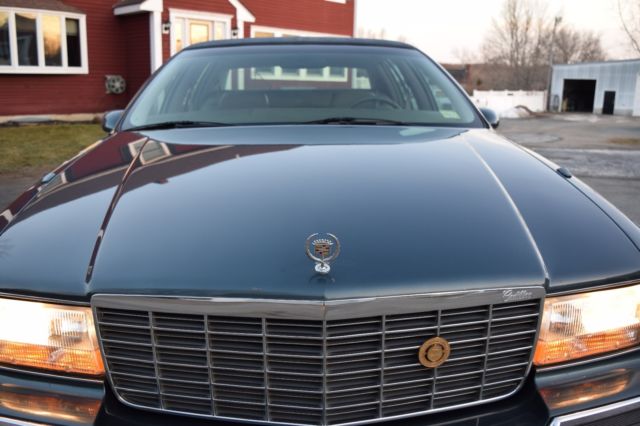
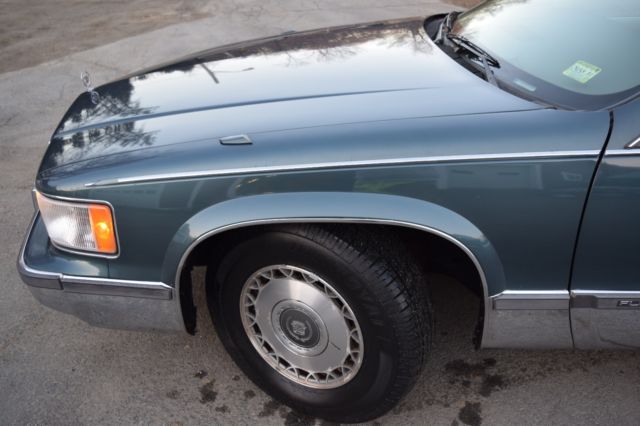
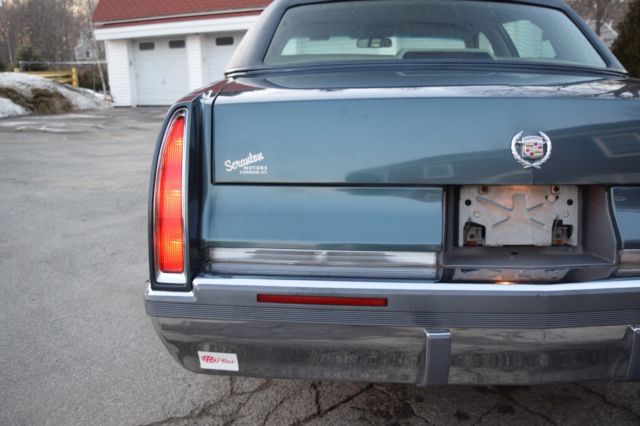
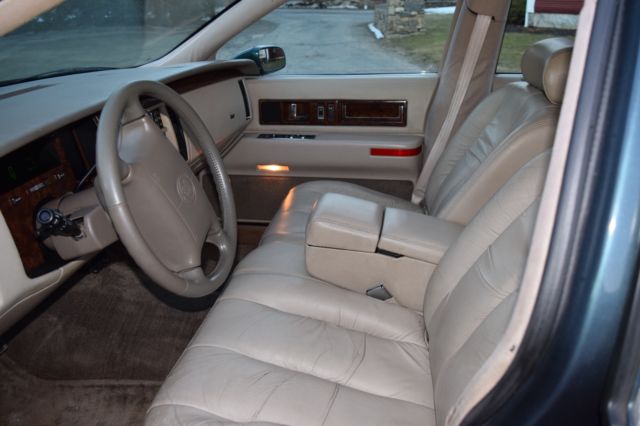
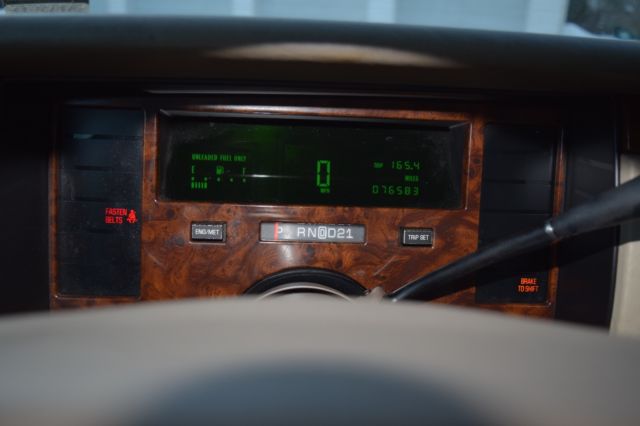
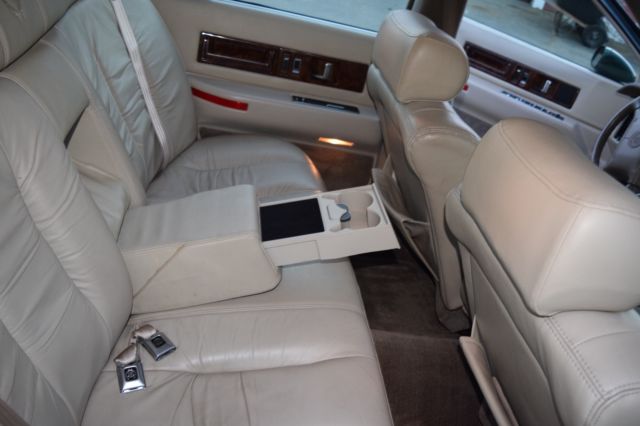
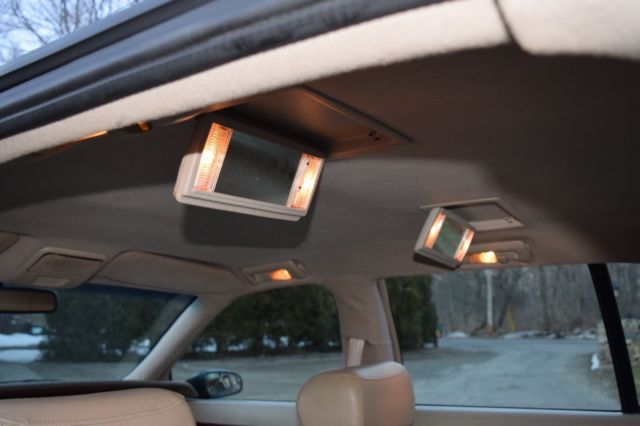
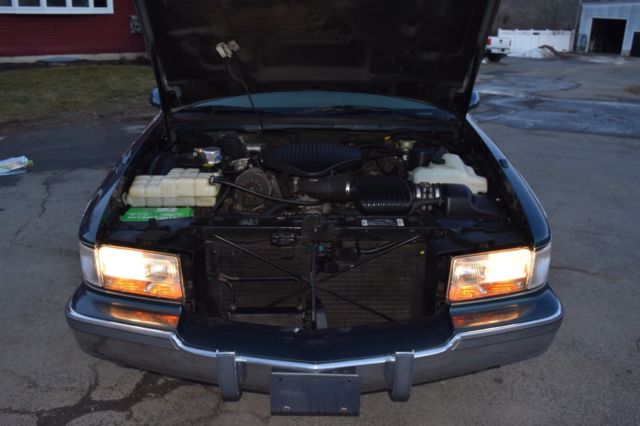
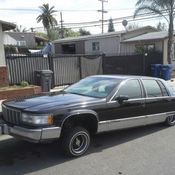 1994 cadillac fleetwood Lowrider
1994 cadillac fleetwood Lowrider
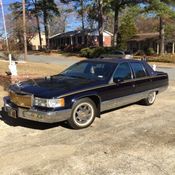 1994 Brougham Fleetwood Cadillac
1994 Brougham Fleetwood Cadillac
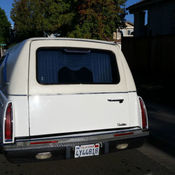 1994 Cadillac Fleetwood Hearse
1994 Cadillac Fleetwood Hearse
 1994 Cadillac Fleetwood, Tan with 65,000 Miles available now!
1994 Cadillac Fleetwood, Tan with 65,000 Miles available now!
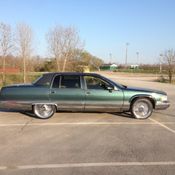 1994 Cadillac fleetwood brougham
1994 Cadillac fleetwood brougham
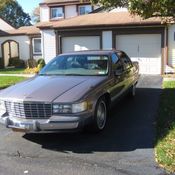 1994 Cadillac Fleetwood 5.7 LT1engine
1994 Cadillac Fleetwood 5.7 LT1engine
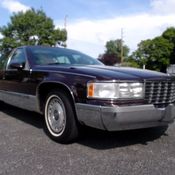 1994 Cadillac Fleetwood Brougahm 5.7 Liter LT1 V-8
1994 Cadillac Fleetwood Brougahm 5.7 Liter LT1 V-8